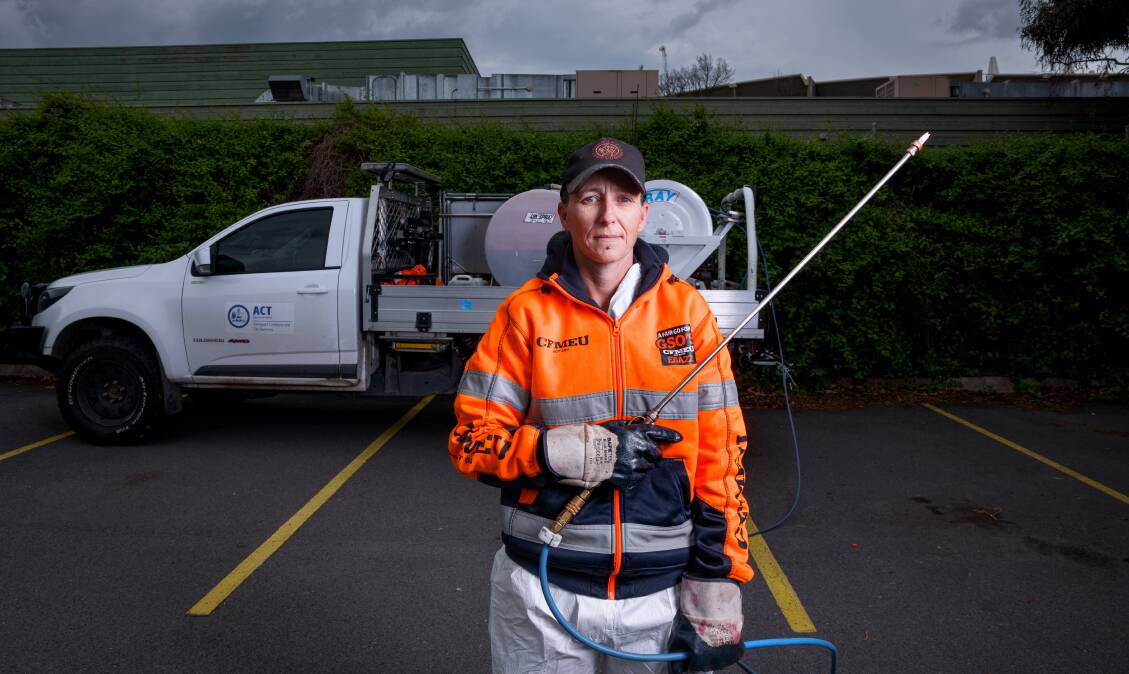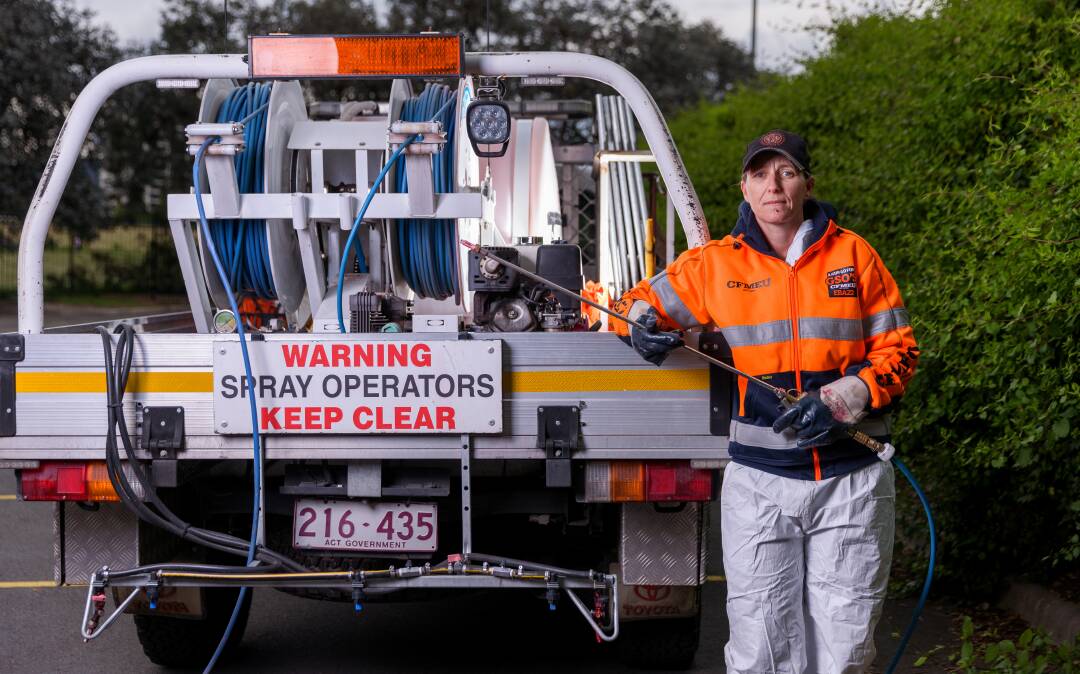
When Sarah Clifford gets ready for work each day she does not know what job she may be asked to do.
She could be asked to clean some public toilets, mow the ever-growing grass around Canberra or manage traffic.
This is the daily reality for general service officers in the ACT government who do all these important jobs to keep the city running.
"We need a lot of certificates to do these positions, some examples are a pest control certificate, a chainsaw certificate, traffic management ... there's a huge variety of things a general service officer can be asked to do," Ms Clifford said.
But some of these workers earn barely enough to make ends meet and a campaign is ramping up to increase their base wage.
The starting wage for general service officers in the ACT is $50,925 and the union is calling for an immediate increase to the base pay to $61,000 a year.
Some workers have been forced to sleep in cars as they contend with the soaring costs of living.
"With the cost of living here it's just unbelievable, everyone's struggling," Ms Clifford said.
"It has skyrocketed. It's really hard. Really, really hard."
The job of a general service officer is to perform cleaning, maintenance and technical duties across the territory's public spaces and they are often asked to perform rather unpleasant tasks.
"It's not uncommon to find people have defecated not in the toilet," Ms Clifford said.

They were also on the frontline during the COVID-19 pandemic - essential workers who toiled away as people stayed at home.
"We had to work through COVID and things like that. My son was home doing homeschooling and I'd have to go to work," Ms Clifford said.
Ms Clifford does love her job and wants it to be appropriately recognised.
"I love my job. I love going out and doing what I do and I do like the variety of tasks that we get to do," she said.
General service officers have already rallied to call for an urgent increase to their pay and are not ruling out further action.
CFMEU ACT secretary Zach Smith said the union's campaign to push for higher wages would continue to ramp up.
"We're not ruling out further action, including rallies and, ultimately, industrial action if need be. But we're hoping that the government sees the argument for what it is and rewards these workers accordingly and remunerates them properly," he said.
"We've got workers who are in full-time jobs for the ACT government who are struggling to make ends meet. That's just completely unacceptable."
School cleaners are also likely to join in on the campaign for higher wages.
Karma Dema has worked as a cleaner since 2015 when she moved to Canberra from Bhutan.
The ACT government previously used contractors for school cleaning services but brought this in-house more than two years ago. This was welcomed by cleaners, however, their wages have not kept pace with the rising costs
"In 2020 the ACT government took over us and at that time we were really excited, we thought it was going to be better," Ms Dema said.
"But now the living expenses are really high and I think we are receiving only $20 to $22 per hour as cleaners.
"It's really hard for us to do and we have to work many hours and some of my friends are working two to three jobs just to live."
Chief Minister Andrew Barr said at ACT Labor's conference in August that the government was focused on actively lifting up the wages of some of the lowest-paid staff in the territory's public service.
Delegates at the conference also agreed to a motion from the CFMEU ACT branch and the United Workers Union to increase the pay for general service officers.
However, Mr Smith said the union had yet to receive a response to their campaign.
"It was encouraging that at the highest levels of government they recognise this issue but we haven't had a response to our claim," he said.
"We're not going to let up on the campaign until we've got the outcomes that our members need. Words alone won't pay the bills."
An ACT government spokesman said discussions on the territory's public service enterprise bargaining agreement had begun and the government would prioritise increasing these wages.
"The government is well aware that national inflationary pressures are having a disproportionate impact on individuals on lower incomes," the spokesman said.
"The government hopes to agree on a new agreement as soon as possible."
We've made it a whole lot easier for you to have your say. Our new comment platform requires only one log-in to access articles and to join the discussion on The Canberra Times website. Find out how to register so you can enjoy civil, friendly and engaging discussions. See our moderation policy here.





